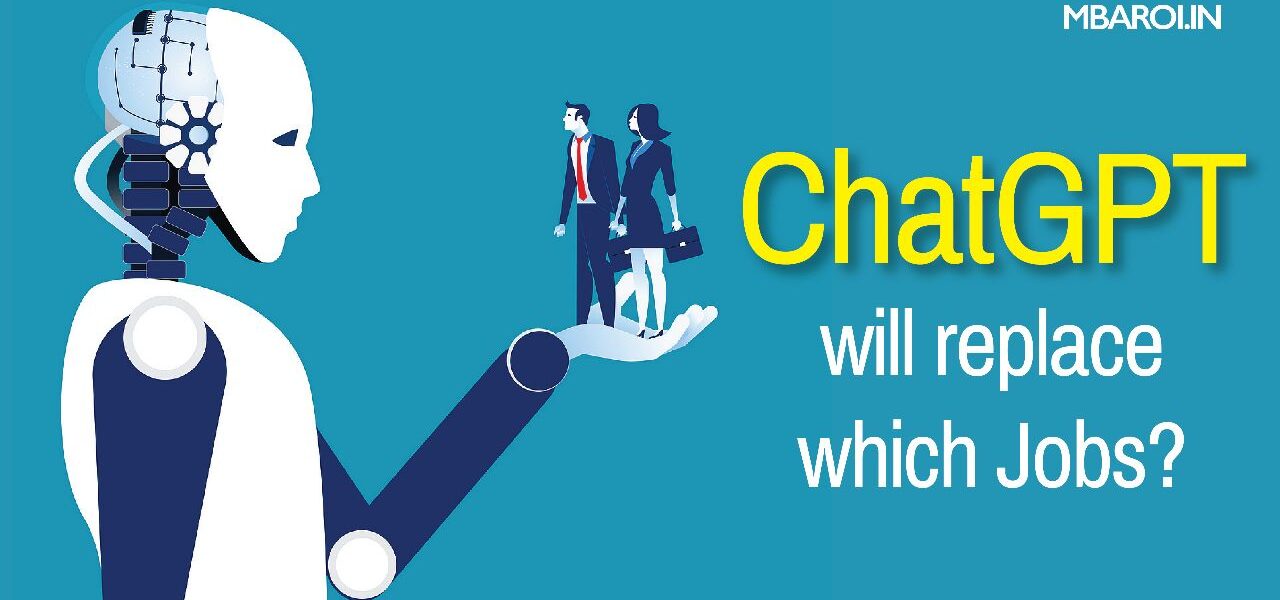It is clear that technology is rapidly advancing and transforming the way we live and work. While some may fear that ChatGPT and automation will lead to widespread job displacement. Others argue that these technologies will create new job opportunities and enhance the overall efficiency of the workforce.
However, based on current capabilities and potential applications, it is reasonable to assume that ChatGPT and other AI-powered chatbots could impact certain jobs more than others.
Jobs that involve repetitive and routine tasks, such as data entry clerks and customer service representatives, are more likely to be automated in the future. Chatbots are already being used to handle simple customer queries and complaints, and as AI technology continues to improve. They could become even more sophisticated and capable of handling more complex tasks.
Read More: How an MBA Leads Startup Towards Success?
In addition, jobs in fields such as content writing and language translation could also be impacted by AI technology.
ChatGPT has already demonstrated the ability to generate coherent and convincing written text, and as it continues to learn and improve, it could potentially replace human writers in some contexts. Similarly, AI-powered translation tools could reduce the need for human translators in certain situations.
It is important to note that while AI and automation will certainly impact the job market, it is unlikely that they will completely replace human workers.
Jobs that require creativity, empathy, and critical thinking skills, such as healthcare and education, are less likely to be automated in the near future. Therefore, workers may need to adapt and acquire new skills to remain competitive in the job market.
Potential jobs that could be replaced by ChatGPT:

| Job Title | Potential Impact by ChatGPT |
| Customer Service Representatives | Reduction in routine customer inquiries and support tasks handled by ChatGPT-powered chatbots, potentially impacting the need for human customer service representatives for repetitive tasks. |
| Data Entry Clerks | Automation of data entry tasks by ChatGPT, potentially reducing the demand for human data entry clerks. |
| Content Writers | Generation of human-like text responses by ChatGPT, potentially impacting content creation jobs for repetitive and formulaic writing tasks. |
| Language Translators | Simplification of language translation tasks by ChatGPT, potentially affecting jobs in language translation, particularly for simpler translation tasks. |
| Virtual Assistants | Automation of administrative tasks such as scheduling appointments, managing calendars, and organizing tasks by ChatGPT, potentially impacting jobs of virtual assistants. |
| Call Center Operators | Handling routine and repetitive tasks in customer interactions by ChatGPT-powered chatbots, potentially impacting jobs in call centers. |
| Travel Agents | Providing travel recommendations and booking assistance by ChatGPT, potentially impacting the need for human travel agents for certain tasks. |
| Data Analysts | Automation of data analysis tasks by ChatGPT, potentially reducing the demand for human data analysts for repetitive analysis tasks. |
| Social Media Managers | Generation of social media content by ChatGPT, potentially impacting the need for human social media managers for routine content creation tasks. |
| Technical Support Specialists | Handling routine technical support inquiries and troubleshooting by ChatGPT-powered chatbots, potentially impacting the need for human technical support specialists for repetitive tasks. |
Conclusion:
In conclusion, while the potential impact of ChatGPT and other AI-powered chatbots on the job market is still uncertain. It is clear that these technologies will continue to play an important role in various industries. While it is likely that some jobs will be replaced by these technologies, there is also a possibility that new jobs and industries will emerge.
Read More: Will ChatGPT kill mba?
As the development and implementation of AI technology continue to progress, it is important for individuals and society as a whole to adapt to these changes and embrace the opportunities that arise. This may require workers to develop new skills and seek training in areas that are in demand.
Moreover, it is important for policymakers, business leaders, and other stakeholders to carefully consider the ethical and societal implications of AI technology.
Ensuring that these technologies are developed and implemented in a responsible and ethical manner. It can help to minimize potential harm and ensure that the benefits are shared equitably.
Overall, while the potential impact of ChatGPT and other AI-powered chatbots on the job market cannot be predicted with certainty.
It is important to approach these changes with an open mind and a willingness to adapt to new challenges and opportunities.





